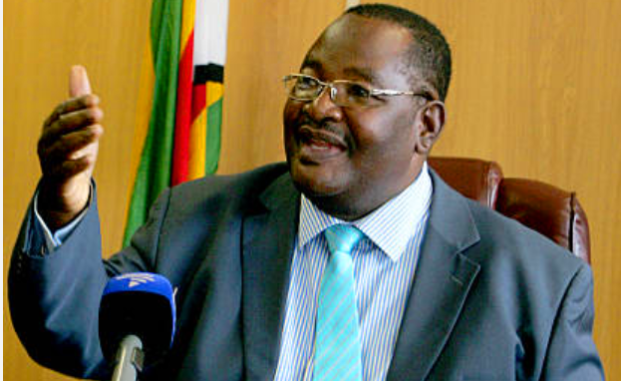
BY SILAS NKALA MATABELELAND pressure group Ibhetshu likaZulu has blasted Zanu PF bigwig Obert Mpofu for downplaying the Gukurahundi massacres in a video that went viral this week.
Gukurahundi is a thorny issue in Matabeleland and Midlands provinces were an estimated 20 000 people were killed in the 1980s during civil unrest. The killings ended in 1987 after the late former President Robert Mugabe and late Vice-President Joshua Nkomo signed the Unity Accord.
Government has never publicly apologised for the mass killings and the victims have never been compensated.
During an interview with CITE at the weekend, Mpofu said: “Something painful (Gukurahundi) cannot continue to be talked about because it does not build. We cannot keep reminding people about this all the time because Mugabe and Nkomo discussed and put an end to the issue.”
Ibhetshu likaZulu co-ordinator Mbuso Fuzwayo described Mpofu’s utterances as insensitive.
“If we have denialists like Mpofu, then we are far from resolving the Gukurahundi issue. We should openly speak about our past experiences,” he said. Fuzwayo said he was pained that Gukurahundi memorial plaques continued to be destroyed.
“Telling people that Gukurahundi was resolved by Nkomo and Mugabe is nonsense, or failure to understand that a genocide cannot be resolved by two political leaders without involving the families affected, or without using a victim-centred approach,” he said.
Fuzwayo added that Ibhetshu likaZulu was mobilising resources to replace Gukurahundi plaques that were vandalised at Bhalagwe in Kezi, Matabeleland South and at Silobela in the Midlands province.
- Chamisa under fire over US$120K donation
- Mavhunga puts DeMbare into Chibuku quarterfinals
- Pension funds bet on Cabora Bassa oilfields
- Councils defy govt fire tender directive
Keep Reading
The Bhalagwe plaques were vandalised three times since the programme started.
“We are working to replace the plaques that were destroyed and we are currently engaging communities on what they want done to properly address the genocide issue. The government must protect, and not destroy the plaques as a form of truth telling.
“If the plaques are protected, it gives people confidence that the issue is being solved,” Fuzwayo said, adding that the last plaque was not stolen, but was bombed.
“This top bottom approach is not resolving the Gukurahundi issue, but it’s silencing people. Give the victims a voice for them to heal (bottom up) and don’t impose a solution. Allow them to mourn if they want to,” he said.
Human rights activist Effie Ncube said the Gukurahundi issue was not child’s play.
“There is no way it will disappear without truth telling and justice. They can destroy, vandalise, and do all sorts of things, but the quest for justice and truth will remain until justice prevails. I urge Ibhetshu likaZulu to continue erecting plaques to push for justice and truth and remembrance of the victims.”
President Emmerson Mnangagwa has since tasked Matabeleland chiefs to consult their subjects on the issue. Critics, however, say it is a flawed approach because some of the leaders tasked to discuss the issue were involved in unleashing violence on civilians.
- Follow Silas on Twitter @silasnkala










